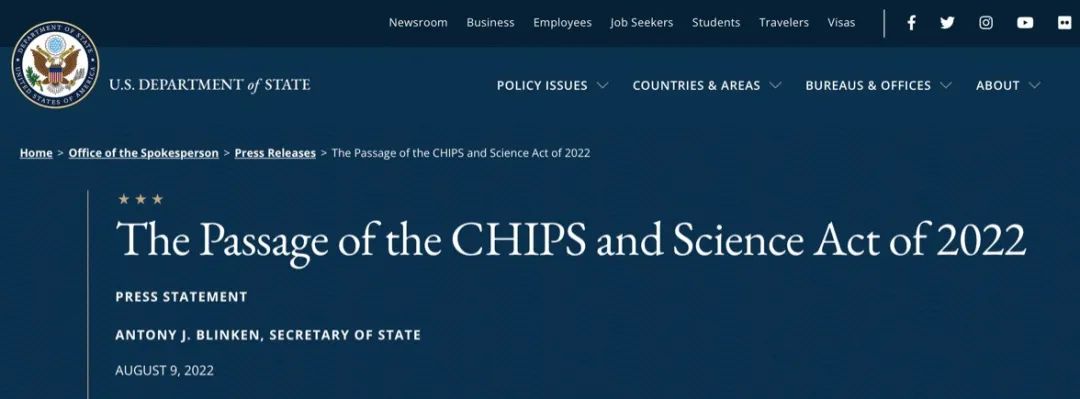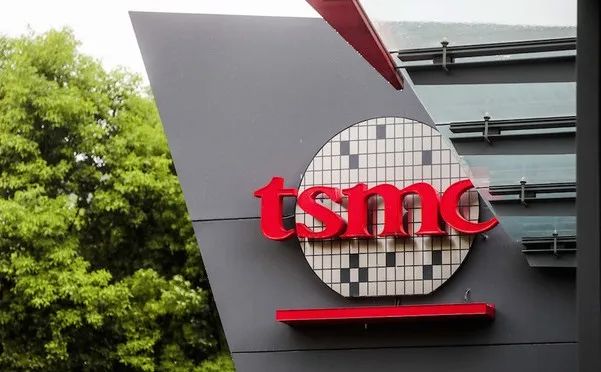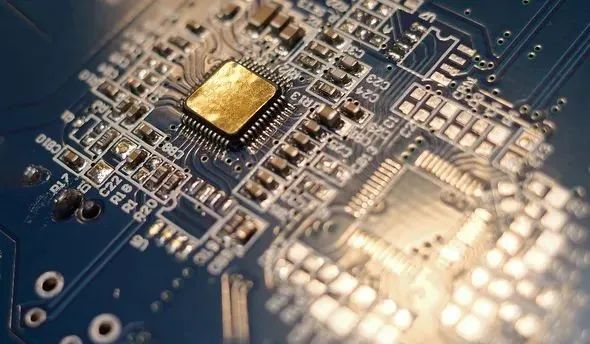[Solution] Can the United States win at $ 280 billion to launch a "chip war" in China?
Author:Knight Island Time:2022.08.12
Recently, the United States' 2022 Chip and Science Act (hereinafter referred to as the "Chip Act") was officially signed as a decree with President Biden Biden. At the beginning of the brewing, the 1,000 -page bill was famous. It was called "the weapon that the United States won the 21st Century Economic Competition" by the United States and the media and the media.
Biden Quaroli: "It is a cracking of the sky, you can also get the bill." Obviously, the bill is largely coming to China.

The US "2022 Chip and Science Act" was officially signed. Picture source: U.S. State Department website
one
The United States is anxious to smash so much money to the chip industry, with its historical and realistic background: In the 1990s, the production capacity of American chip manufacturing accounted for 37%in the global market, and now it has fallen to 12%. The "Chip Act" is to encourage chip companies to return to the United States to build production lines and expand capacity, and re -strengthen the US chip manufacturing industry.
According to the White House statement, the bill will provide US $ 52.7 billion subsidies for US chip manufacturing, R & D and labor development, and give 25%of investment tax discounts for companies that set up chip factories in the United States. Scientific research innovation in areas such as intelligent and quantum computing. Lin Lin always added, involving funds over $ 280 billion.
Although this plan is large, it is still the "carrot+big stick" strategy--
"Carrot" is to smash money, set up a "four major funds" for $ 52.7 billion, which are used for chip manufacturing, chip technology security and innovation, chip labor development and education, and national defense chips; "big sticks" point directly to China.
For example, the bill prohibiting companies that obtain subsidies to the United States to increase production chips in China in China. For a limited period of 10 years, those who violate the ban may be refunded in full. State "expand semiconductor production capacity.
To put it bluntly, taking this subsidy means that you cannot invest in higher -level chips in mainland China within 10 years. White House spokesman said that the "Chip Act" is to attract semiconductor manufacturing companies to invest more in the United States rather than China.
The problem is that the chip is an international industry, and the leaders are multinational companies. Many foreign media believe that the fundamental purpose of the "Chip Act" is to allow transnational chip companies such as TSMC, Samsung, Intel to "choose" between China and the United States.
Mainland China is the world's largest chip market. At present, TSMC has 16 nanometer and 28 -nanometer chip manufacturing factories in mainland China. Samsung has a storage chip manufacturing plant in Xi'an. SK Hynix, Intel, Micron and other companies have chip packaging and testing plants in China. In addition, many high -end chip projects of 7 -nanometer and 5 -nanometer are also layout.
After the bill takes effect, if these companies continue to expand their factories in China, they may lose huge US subsidies. They are in a unfavorable position in competition with other American chip companies, and even the upstream and downstream of the industrial chain are disturbed by the United States.
But if the company is really obedient, turning production capacity to the United States is equivalent to abandon China's huge market opportunities to a large extent. After all, this high-tech and high-value-added industry has always followed the cycle path of "high R & D investment-high market application-investment research and development".

TSMC (source: network)
two
According to the BBC report, before the signing of the bill, all American chip manufacturers received letters from the US Department of Commerce, requiring no manufacturing equipment for 14 nanometers or more advanced chips to China. According to the analysis of the "core conspiracy research" of China Semiconductor Think Tank, the "Chip Act" is only a "front dish". To form a "chip Quartet Alliance", win Japan and South Korea, and Taiwan to build an American chip "backyard", is the key killing of the development of the Chinese chip industry. trick.
Let an industry a geopolitical weapon obviously contrary to economic laws.
In the past few decades, the chip industry has high globalization. The production of some advanced chips needs to go through more than 1,000 processes such as etching, diffusion, and packaging, which requires more than 70 cross -border cooperation to complete.
Last year, Uncle Island visited Shandong to visit a "specialized new" company. This company mainly produces high -temperature -resistant leggings for the manufacturing and purification of semiconductor materials. According to the person in charge of the enterprise, the more precise products, the higher the uniformity of heating containers during high temperature forging. After years of research, the company has successfully created an ultra -high temperature real air gas high purification furnace with independent intellectual property rights, and has achieved unique uniqueness. Market Advantage.
But mastering the technical advantage is not a single fight. The company is still importing raw materials from Japanese partners. Why? The chip industry chain is very long. It is not easy for a single company to make one of the links. Only by cooperating with their own comparative advantages and characteristics can all parties maximize efficiency.
The same is true for the international chip market. The United States has the world's top semiconductor equipment suppliers. The chip design software EDA is also highly monopolized by three American giants (SynopSys, Cadence, Mentor). long.
The founder of TSMC made it clear that the same chip was produced in the United States about 50 % higher than in Taiwan. What can the United States develop local chip manufacturing, in addition to "futile, waste and high cost", what can they be obtained?
In the final analysis, the "Chip Act" forcibly expands American chip production capacity through "unconventional protection measures". It may not be to obtain real gold and silver, but to ensure that "not to be caught up" and retain the absolute development advantage of China. For this goal, sacrificing the global industrial chain and stability of the supply chain, including the United States. In response to this "hegemony anxiety", American companies, media, and think tanks are not lacking. During the "Chip Act", Intel has lobne strongly, calling on the United States not to restrict the investment of chip companies in mainland China, and worry that "the bill will weaken the global competitiveness of the subsidy company." Bloomberg criticized that the bill would cause "huge squandering." Some American scholars remind that no matter how the United States supports its own manufacturing industry, it is impossible to decide with the global supply chain.
(Source: Jiefang Daily)

three
Can the United States win this pretty "chip war"? At present, there is almost no international mainstream voice to be optimistic about this "gambling".
There is no free lunch. The "Chip Act" intends to invest $ 280 billion, but where does the money come from?
Continue to borrow? Earlier this year, the scale of US Treasury bonds exceeded $ 3 billion for the first time. The government deficit continued to deteriorate, and it would be necessary to exacerbate the risk of US debt defaults. Starting money printing machine? The United States's irresponsible currency easing policy has brought severe inflation. The Fed has raised interest rates 4 consecutive times this year. How can it be printed again.
What about the money of "digestion" through its own economic recovery? Data from the US Department of Commerce showed that in the second quarter of this year, the US GDP calculated by 0.9%at an annual rate, shrinking for two consecutive quarters, and fell into a technical decline. Although Pelosi calls the "Chip Act" as "a major victory in the American family and the US economy", in terms of the status quo, huge expenditures of $ 280 billion will cause the government and taxpayers, and may further intensify domestic contradictions.
People of insight pointed out that industrial policies with inconsistent costs and income not only cannot stimulate entrepreneurs' innovation, but can easily stimulate opportunities of opportunity. Some opponents of the "Chip Act" in the United States predict that highly profitable local chip companies are likely to use government subsidies for stock repurchase and stimulating stock prices instead of investing in research and development and building factories.
Boston Consulting estimates that if the United States insists on adopting technical decoupling to China, it may cause American chip companies to lose 18%of global market share and 37%income, and reduce 15,000 to 40,000 high -skilled jobs because " The subsidy of the chip bill does not make up for the cost of the company's relocation of factories from China to the United States.
A few years ago, the Trump administration fought a trade war with China in violation of market laws, and the result did not "make the United States stronger again", but instead pitted the majority of American companies and ordinary people. The competition between science and technology between the country is understandable, but the road is positive. It is expected to suppress other countries in the way of "New Cold War in the Industry". In the end, it will only be contrary to wishes.
Text/Zidu
Edit/Diancang
- END -
Under the leadership of the Communist Party of China, the Chinese society shows great vitality -visiting the Chairman of the National Federation of the Belt and Road to Bulgaria

Xinhua News Agency, Sofia, June 28th. Interview: Chinese society shows huge vitali...
Bayon is embarrassed

Most Americans do not want him to continue to run for president.According to the U...